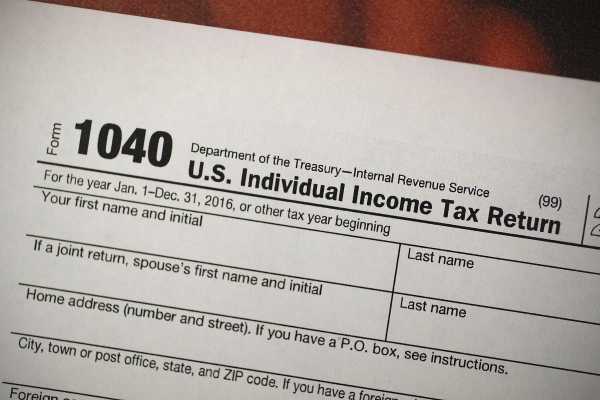
The federal government’s partial shutdown is now the longest in history, with President Donald Trump refusing to sign a spending deal that reopens the government as long as it doesn’t include $5 billion for his wall at the US-Mexico border. As the shutdown continues and as tax filing season nears, many people may wonder: How is the government shutdown affecting tax returns and refunds?
The short answer: Despite previous concerns, the Trump administration is trying to ensure tax returns and refunds aren’t noticeably affected by the shutdown — calling back IRS employees to make sure all the paperwork and filings are processed. So once tax filing season starts on January 28, taxpayers should expect to get their money back on time, according to the IRS’s contingency plan.
But there’s some uncertainty, especially as the shutdown drags on. To get tax refunds processed, the IRS is forcing employees to work without pay, with the promise of back pay once the government reopens.
It’s unclear, though, if the IRS is calling back enough employees to do this work as quickly as it’s historically been done, and whether IRS employees will really tolerate working without pay for long. If workers stop showing up, that could mean delays, or worse, for tax refunds.
Join the Vox Video Lab
Go behind the scenes. Chat with creators. Support Vox video. Become a member of the Vox Video Lab on YouTube today. (Heads up: You might be asked to sign in to Google first.)
The longer answer: As part of the government shutdown, the IRS has retained more than 46,000 workers, or 57.4 percent of the IRS workforce. The majority of those employees are working without pay, though they’ll get back pay once the government reopens.
The staffing will let the IRS continue some operations for now, particularly functions that are automatic (and require limited to no workers) and those deemed “necessary for the safety of human life or protection of government property.” Some examples: processing electronic returns, processing returns with payments, mailing tax forms, appeals, criminal law enforcement and investigations, and technical work to make sure computer systems remain up and running.
In the past, these activities didn’t include processing tax refunds. But the IRS is calling back tens of thousands of employees to handle tax refunds, citing a 2011 memo to argue that it’s allowed to do so.
So taxpayers will be able to mail in tax returns or submit them online, and get their refunds, even if the shutdown continues on.
One major caveat to all this: It’s unclear how long IRS employees will tolerate working without pay. Already, some federal employees have sued the Trump administration over uncompensated labor. If employees eventually get fed up — and perhaps go on strike, or stop showing up to work for other reasons — that could delay tax refunds no matter what the IRS does.
Another concern is whether the IRS is calling back enough workers to process tax refunds as quickly as it has in the past. If not, there could be delays in refunds, even if they get out eventually.
Meanwhile, the IRS has stopped several other functions: audits, return examinations, non-automated collections, and legal counsel, among other operations. (For a full list, read the IRS’s contingency plan.) Depending on how long the shutdown lasts, the IRS may opt to restart some of these functions no matter what — but the employees carrying out this work may not be paid for it until Trump and Congress agree to a spending deal.
One other area in which the IRS may have problems is the continuing implementation of the 2017 tax law passed by Republicans in Congress and signed by Trump. As the IRS’s contingency plan noted, the law’s implementation “requires creating or revising hundreds of tax products including worksheets and tax forms, form instructions and publications as well as changes to current IRS policies and procedures.” That work is likely to be stalled by a shutdown.
At least for now, though, taxpayers can expect to be able to file their returns and get their refunds.
Sourse: vox.com






